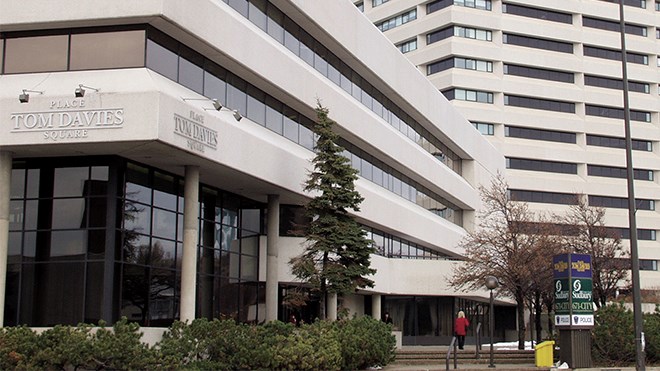Property taxes in Greater Sudbury will likely go up by 3.5 per cent in 2019, members of the city's finance committee were told Tuesday.
City budget director Ed Stankiewicz told councillors the increase is needed to maintain existing services, pay some increased costs in delivery programs mandated by the province, and to pay for the city's infrastructure. The total city budget is $581 million for 2019.
The increase would have been 4.5 per cent, but assessment growth is estimated to be one per cent, reducing the overall tax increase.
But the increase on homeowners is expected to be reduced by a change in the way the city distributes the tax burden.
“The overall impact for the residential tax class will likely be less than the 3.5 per cent increase,” a staff report on the budget. “The 2016 property value reassessment affected the distribution of the tax burden amongst tax classes. As a result, commercial, industrial, and multi-residential classes will be accounting for a larger portion of the tax burden, benefiting the residential class.”
Councillors also directed staff to prepare options to reduce the increase to 2.5 or three per cent, and will ask outside boards to do the same.
One challenge councillors will face is with the police budget. The force's early estimate is a 3.8-per-cent increase, and includes money set aside for badly needed renovations to the police headquarters.
Mayor Brian Bigger said other budget pressures could push the police budget even more.
“The police request seems to be about 5.8 per cent,” Bigger said.
That's because police are at risk of losing a provincial grant intended to help Ontario police improve “effectiveness, efficiency and modernization of policing services,” the staff report says.
“This represents a potential loss of $1.1 million in 2019, and a further reduction of $360,000 in 2020,” the staff report says.
On top of the grant, police are estimating that enforcing rules around the legalization of marijuana this summer will add another two per cent to policing costs, or about $1.1 million.
In addition to property taxes, a 7.4-per-cent increase in the water-sewer budget is forecast, part of a long-term plan to have users of the system pay for the operation and maintenance of the system.
Overall, spending on roads will take up 25 per cent of the budget, police 19 per cent, social services 11 per cent, while fire and leisure services take up 10 per cent each.
While giving staff direction, it will be the next municipal council elected in October that will make actual budget decisions.
